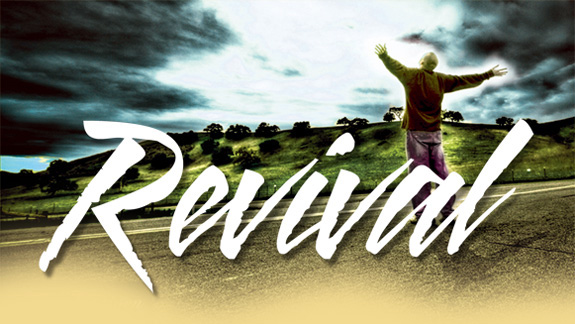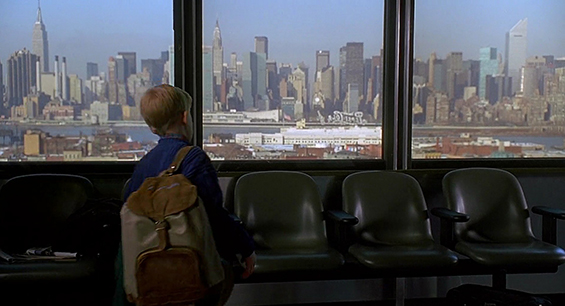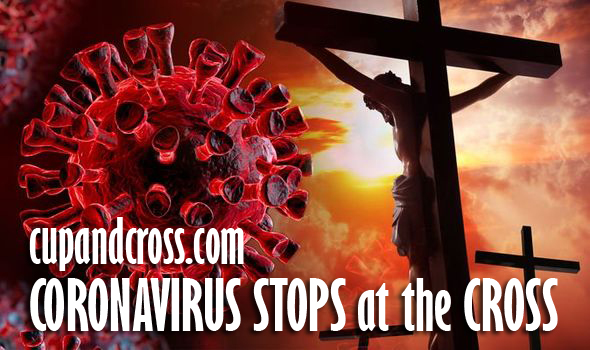Fulfilling the Great Commission by 2033?
Dr. Billy Wilson and Dr. Rick Warren hold ‘2033 Leaders Consultation’
NEW YORK — More than two dozen ministry leaders of significant global networks convened Dec. 5-6 in New York City to combine their experience and insights toward the goal of Great Commission fulfillment within the next decade.
Hosted by Dr. Billy Wilson, Oral Roberts University President, Pentecostal World Fellowship Chair and Empowered21 Global Chair, and Dr. Rick Warren, Executive Director of Finishing the Task and Founding Pastor of Saddleback Church, the event brought the leaders representing significant denominations, para-church networks and evangelistic ministries from around the world together for prayer, connection and collaboration.
“I believe we are entering the most important decade of Great Commission effort in the history of the church,” shared Dr. Wilson. “Numerous 2033 initiatives were represented in this consultation and it was a joy to witness our shared passion and unity across the diversity of the body of Christ. The next decade is going to be amazing as we push together toward providing everyone on planet earth the opportunity to know Jesus as their savior.”
The two-day meeting ended with the development of a commitment document agreeing to significant efforts over the next decade, including collaborating with one another, praying for the salvation of others, mobilizing followers of Jesus to join in the efforts, investing increased resources for evangelism and going with the good news to the ends of the earth.
“In our polarized world, it’s easy to erect walls and go it alone with just your own tribe,” noted Warren. “It takes courage to build bridges to others who love Jesus but don’t believe or practice the faith in the same way you do. On Dec. 5, as I listened and watched a small group of 24 influential Christian leaders, representing a wide spectrum of the Body of Christ, step out of their comfort zones in order to begin collaborating to complete the Great Commission, I sensed that God was smiling from Heaven. He had found a group of people willing to be an answer to Jesus’ prayer for the unity of His church that He prayed in the Garden of Gethsemane the night before He was crucified.”
The group plans to convene again at , a three-day conference and one-day stadium event hosted by Empowered21 on June 21-24, 2023 at Amsterdam RAI & Olympic Stadium. The international event will feature influential leaders and powerful speakers to launch a decade of unprecedented evangelism to get the gospel to every person on earth by 2033. For more information, visit amsterdam2023.com.
Represented Organizations
The following organizations and ministries were represented at the Dec. 5-6 event:
- Brian Alarid, America Prays & World Prays
- Doug Beacham, International Pentecostal Holiness Church
- Keith Boyette, Global Methodist Church
- Henry Cappello, Global 2033
- Samuel Chiang, World Evangelical Alliance
- Doug Clay, Assemblies of God
- Dick Eastman, Every Home for Christ
- Oliver Fleury, Jesus Celebration 2033
- Mart Green, Hobby Lobby
- Bobby Gruenewald, YouVersion
- Tim Harlow, National Association of Christian Churches
- Alan Hawkins, Anglican Church in North America
- Rob Hoskins, OneHope
- James Hwang, Billion Soul Harvest
- Young Cho, Billion Soul Harvest
- Everton Jackson, Baptist World Alliance
- Werner Nachtigal, GO Movement
- Michael Oh, Lausanne Movement
- Nick Perryman, Alpha
- Thomas Schirrmacher, World Evangelical Alliance
- Rick Warren, Finishing the Task
- David Wells, Pentecostal Assemblies of Canada
- Michael White, Rebuilt Parish / Church of the Nativity
- Billy Wilson, ORU and Empowered21
- Caleb Wehrli, Empowered21
- Ashley Wilson, Empowered21
Participating Leader Quotes
“After our meeting, the World Evangelical Alliance is even more committed to ‘2033.’ It was a great meeting of collaboration, planning and global leaders becoming friends for the gospel’s sake.” — Thomas Schirrmacher, Secretary General, World Evangelical Alliance
“The rising global generation is perhaps the most cause-oriented generation in the history of the world. This call and clear statement from the leadership of the global Church to reach everyone in the world with the love, truth and power of Jesus is going to be incredibly appealing for a decade of unprecedented evangelism.” — Rob Hoskins, President, OneHope
“It’s inspiring and exciting to be part of a coalition across global Christianity focusing on global evangelism by the year 2033. The spirit of prayer and unity is palpable.” — Doug Beacham, Superintendent, International Pentecostal Holiness Church
“I was inspired and envisioned by the unity amongst all Christian leaders and the commitment to engage and collaborate to finish the task of the Great Commission. This is the beginning of a new era, with an incredible momentum, through which every person can be reached with the Gospel message.” — Henry Cappello, International Director, Global 2033
“Imagine that we live in a time when it is possible to reach the whole world with the Gospel. We’re excited to call the Church to join us for this incredible decade of evangelism.” — Werner Nachtigal, Founder, GO Movement
“What an amazing privilege to meet with global leaders passionate about accelerating the fulfillment of the Great Commission. We have a unique opportunity to unite across the Christian church to ensure that every person hears and has an opportunity to hear and respond to the Gospel of Jesus Christ” — Keith Boyette, Connectional Officer, Global Methodist Church
“What a historic meeting of like-minded Global leaders gathered around Jesus for the biggest push ever for the Great Commission. The Ecclesia has the best Good News ever told. And this broken world desperately needs hope at a geo-politic level and transformation at a personal level. A powerful united Global Momentum has begun.”
— Olivier Fleury, Founder and President, JC2033
“The call towards collaboration of the body of Christ to reach 8 billion is an exciting and encouraging opportunity for the Global Church. This is a crucial, historic, unprecedented work of God.” — Bishop Alan Hawkins, Chief Operating Officer, The Anglican Church in North America.
About Empowered21
Empowered21 is a global Spirit-filled movement working to connect the generations for blessing, impartation and a fresh outpouring of the Holy Spirit in the 21st century. Its U.S. office is on the campus of Oral Roberts University, of which Empowered21 Global Chair Dr. Billy Wilson is president. To learn more, visit empowered21.com.
29 Years in America
I came to the United States 29 years ago to the date – 29 of my 33 years in ministry I spent preaching here. Over a quarter of a century ago in Chicago, I helped start the first Bulgarian Church of God outside of Bulgaria. You can read about this here: https://cupandcross.com/25-years-ago-in-chicago/ and from my first dissertation here: https://cupandcross.com/a-quarter-of-a-century-ago-in-chicago/
Next year, I will be 50. Naturally, I’ve seen a few things change. I am not talking just about political correctness, cheap import quality or long distance customer service. Yes, I can say this because I am an immigrant too. But in my line of work, I made my mind a long time ago. No Made in China sermons or creative commons mini series downloaded from the internet. When I preach, I will give it my best so help me God.
Having said this, I wish I would have lived in States in the late 70s. Big cars, cheaper gas, cleaner foods, much clearer standards and maybe even a much simpler life. All made in America. And a very different type of people and churches. But we all come to this world when it’s our time…
I landed in New York late one cold and snowy night. Being barely 19 at the time, I had recently watched Home Alone: Lost in New York. Landing over the brightly lit Manhattan was just like in the movie. The feeling was indescribable.
Not so much after going through customs. The officer, a professing Muslim as he told me, took one quick look at my passport before giving me a long lecture of all the dangers I was facing by enrolling in the Bible College named on my entrée visa. I disregarded his words, at least at the time. But they haunted me often for the next couple of years.
The heavy snow storm halted all flights out of the city and we had to spend the night in the Big Apple. Waiting for the hotel’s shuttle at JKF’s lobby, I had my second peculiar encounter of the evening. A well dressed lady, obviously a New Yorker, waiting alongside picked up a conversation hearing it was my first visit to the States. She welcomed me with the words that everyone in America has come from somewhere else. She then gave me a dime, which I still keep somewhere, showing the words inscribed on the back side “E pluribus unum,” the meaning of which I knew from my studies in Latin.
The next morning I had my first American breakfast right before flying over to Charlotte. The South welcomed us with some of its coldest weather ever recorded. It was 1994 and 15F. Some even said I brought the winter with me from the old country. And so my journey began.
At first, dreams started to come to reality fast. Many dreams – too many to even count. For a short time, life was a highway. A few trials later, I sobered up. The high places of life are still reached via the narrowest of roads. And through a personal walk. Can’t get there driving fast and furiously or piggyback riding someone else’s dreams.
Because just when you have it all, there comes a time for losing. I lost friends I knew and enemies I didn’t know I had. And I learned to tell my story. Most of it is told in my book Confessions. Not merely in the way I know it, but in a way where others can understand it. And use it.
As I was getting ready to commemorate this anniversary, along with the passing of my faithful father and my praying grandmother this time 20 years ago, I lost another friend. A praying man, a faithful supporter of our ministry, a Man who walked straight and stood up for what was right – a legacy in the minds of many. I told his dear family at the grave site that a generation is passing. Their mantle has been thrown upon us, so we may become carriers of their legacy.
After 25 years, this is our time! We are here and now, so generations may come after us to a new reality, new place in history and new world. The world we’ve dreamed of…
2022 in RETROSPECT
Our 20th anniversary, also marked 20 years since Kathryn first came to Bulgaria and since we ministered there together for the first time. Time flies quickly and 20 years of mission work together has left lots to talk about.
Apart from the pandemic restrictions in Bulgaria and the war on Ukraine, 2022 began with World Missions finalizing the sale of our Central Church Ministry Center in Sofia. This sudden decision closed another 20-year gap since we began building the Center in 2001. As the investment has doubled in the years past, now it will be virtually impossible to turn around and purchase in downtown Sofia another lot (nonetheless a building) of the same size for the ministry of the Bulgarian Church of God.
While waiting to lift pandemic restrictions at the start of 2022, our ministry in Bulgaria was slammed by another major obstacle with the escalating Ukraine war, which began during our trip in Bulgaria in 2014. For Bulgaria, this meant more restrictions and doubling if not tripling the migrant flood in the country within a few short months. Unfortunately, our ministry among them near the Turkish border and now at the Black Sea lacks the building infrastructure and capability to spread to the hundreds of thousands of migrants passing through the country.
With this in mind, on Labor Day weekend starting with the Conference of Bulgarian Churches in North America, we launched our Revival Harvest Campaign just like we have done in the past 20 years. Preaching once again in the Carolinas, Georgia, Florida, Tennessee and beyond was exciting. We ended up extending the length of the campaign four times, even after we were ready to close it at the end of October. In November, the Lord swiftly opened another door for us to present our new Bulgarian-Spanish New Testament in the Dominican Republic.
We’ve been able to keep our services along with our weekly Bible Broadcasts in Bulgaria. Without a central building, our Fall and Christmas services were held only in local churches. With the current COVID restrictions in play, it is virtually impossible to rent auditoriums for large gatherings as we have done in the past. As soon as the weather there allows it, we will return to open air and camp services for special occasions. The building situation is turning to be of concern and continues prayer focus in the post-pandemic reality. We are also working on several Bible projects in the spring, that will be finalized before the summer in time to aid our work on the Balkans in 2023. Revival must go on!
HAPPY NEW YEAR

CORONAVIRUS STATEMENT by Cup & Cross Ministries International
CORONAVIRUS STATEMENT by Cup & Cross Ministries International
The United Nations have just declared the Coronavirus (COVID-19) a global pandemic. Most European flights are suspended and a number of countries in our area of ministry remain closed. Alternatively, CDC has issued a detail set of resources for faith-based communities and their leaders for preventing COVID-19. As a result, churches are cancelling their Sunday services, conferences and international assemblies.
Having full awareness of the above and convinced by the Bible that “It is not the healthy who need a doctor, but the sick,” according to Mark 2:17
WE HEREBY AFIRM that:
- Divine healing [is] provided for all in the Atonement (Psalm 103:3; Isaiah 53:4, 5; Matthew 8:17; James 5:14-16; 1 Peter 2:24 – 42nd A., 1948, pp. 31, 32)
- “The prayer of a righteous person is powerful and effective” (James 5:16)
- And that there is still “power, power, wonder working power in the blood of the Lamb” (L.E. Jones, 1899)
For 30 years now, every public prayer we have held around the Globe has ended with these words:
“WE COMMAND every sickness, every disease, every virus
and ever infection, every tumor and every cancer
to leave the body of the believer in the name of Jesus.”
This prayer includes the Coronavirus (COVID-19) as well and therefore
WE FIRTHER AFIRM:
- Our commitment to REVIVAL especially in the year 2020
- Our long-scheduled Revival Harvest Campaign in celebration of the First Centennial of Pentecostalism in Bulgaria (1920-2020)
- Our readiness to respond to every church, state and national office that contacts us with a request to schedule our ministry in due time.
The Cross of Calvary cancels every coronavirus!
Revival must go on…
Sincerely,
Dr. Dony & Kathryn Donev
Cup & Cross Ministries International
Merry Christmas
13 Years of Chaplaincy on the High Seas
 We began our literal journey of ministry on the high seas in 2009. After exploring the opportunity for several years’ prior and submitting applications to various chaplaincy organizations which dealt with such ministry, the doors finally opened for Cup and Cross.
We began our literal journey of ministry on the high seas in 2009. After exploring the opportunity for several years’ prior and submitting applications to various chaplaincy organizations which dealt with such ministry, the doors finally opened for Cup and Cross.
This search for a ministerial identity and its proper application in the real world coincided with the start of the Master’s in Chaplaincy Ministry Program which we designed for the Bulgarian Evangelical Theological Institute in Sofia around 2008-2009. The long standing relationships with professors, active military chaplains from various fields and countries, and the wisdom of several Generals in the field helped us calibrate our ministry focus with what is needed by real people in the real world.
The new fad “to be real” is not enough in a realistic ministry setting. When 25ft. high storm waves beat the aft and the ship is thrown towards the dark wall of ocean waters ahead, one cannot help but “to be real” and depend on a very real and skilled crew. A captain alone cannot run the boat through a storm even if all systems are reported working. It is the crew deep down in the engine room and making its way on the slippery deck that makes it all happen.
The Crew. Some of them have not seen their families for months or even a year at times. They struggle with the same fears and anxieties as the rest of us. Except, while the rest of us can hold on to something for dear life, the crew is obligated by duty to continue to serve and move the boat ahead. The little chapel on the top deck becomes a passage to a lagoon past the riffs of stormy life where stories are shared, prayers are lifted up together and human lives are reclaimed anew for Heaven.
We have found these nontraditional paths of travel and ministry yielding the most unique encounters and connections for Kingdom growth. Our family is thankful for these 10 years and looking forward to even more means of ministry outside of the four church walls. If you would like for us to come to your church as share our journey feel free to reach out to us.
Bulgarian Evangelical Churches in the European Union (2022 Report)
- Bulgarian Evangelical Churches in Germany
- Bulgarian Evangelical Churches in Spain
- Bulgarian Evangelical Churches in England
- Bulgarian Evangelical Churches in France
- Bulgarian Evangelical Churches in Belgium
- Bulgarian Evangelical Churches in Italy
- Bulgarian Evangelical Churches in Cyprus
- Bulgarian Evangelical Churches in Crete
READ MORE:
- First Bulgarian Church in Chicago Opened in 1907
- Gateway Cities for Bulgarian Evangelical Churches
- How to Start a Bulgarian Church in America from A-to-Z
- Unrealized Spiritual Harvest as a Paradigm for Cross-Cultural Ministries among Migrant and Disfranchised Ethnic Groups in America Today
Revival Harvest Campaign Extended
On September 1, 2022 Cup & Cross Ministries International launched our Harvest Revival Campaign as we have done every fall for the last 20 years. This evangelistic endeavor contains revival services in strategic locations purposing to enhance the ministry of local congregations while reaching unchurched people in each community. Watching God at work has led us to approach this season with even greater anticipation. Our team in Bulgaria has already doubled services and increased the number of churches they visit every week.
Based on the results and requests, we have prayerfully considered to extend this year’s Revival Campaign.
We urge you to pray along with us and seek the will of the Lord for a new and powerful move of God of such magnitude and rarity that cannot be easily ignored! If you feel that our ministry would benefit your vision and congregation, please do not hesitate to contact us and schedule us with your church. Thank you and God bless!

Orthodoxy and Wesleyan Scriptural Understanding and Practice
“I sit down alone: only God is here; in His presence
I open and read this book to find the way to heaven”
– John Wesley
Our search for the theological and practical connection between Pentecostalism and Eastern Orthodoxy continues with yet another publication by St. Vladimir’s Press titled, Orthodox and Wesleyan Scriptural Understanding and Practice. The book represents an ongoing dialogue between the Orthodox and Wesleyan confessions and it emphasizes how theologians from both sides are attempting to discover commonalities in theology and praxis. To come together, not so much as theologians and thinkers, but as practical doers motivated by the proper interpretation of Scripture. As observed from the title, as well as through the text, these similarities are not necessarily in theological convictions, but in the proceeding Biblical approach toward interpretation of Scripture.
Orthodox and Wesleyan Scriptural Understanding and Practice is a compilation of essays from the Second Consultation on Orthodox and Wesleyan Spirituality under the editorship in 2000 of S.T. Kimbrough, Jr., who contributed the chapter on Charles Wesley’s’ Lyrical Commentary on the Holy Scriptures. I must issue the caution that the book is not an easy read. But it is by no means a book to be easily passed by Pentecostal scholars searching for the Biblical roots of Pentecostalism within the Eastern Orthodoxy.
The book begins with an interesting observation of the exegesis of the Cappadocian Fathers by John A. McGuckin, and continues with an article on the spiritual cognition of my personal favorite, Simeon the New Theologian by Theodore Stylianopoulos. Although the discussion on Gregory the Theologian, Basil of Caesarea and Gregory of Nyssa was thoughtful and presented in an interesting manner, the essay on St. Simeon struck me as well structured, but somewhat shallow.
An interesting approach was taken in Tamara Grdzelidze’s essay where she presented an orthodox perspective of the Wesleyan position on authority of scriptural interpretation. The essay had a very strong exposition in regard to the Wesleyan understanding of the importance of Scripture in Christian living. The latter part, which dealt with the influence of tradition, however was not investigated to its full capacity, which left the text (perhaps on purpose) open to multiple interpretations. Nevertheless, this issue was resolved later in the book by Ted Campbell that dealt with the subject from the Wesleyan perspective.
A central theme throughout the book was the comparison of prayers and song lyrics from both camps. Although I am no musical expert, I must agree with the authors when they say that theology in music has played an important role in both Orthodox and Wesleyan traditions. Music continues to be important in the everyday spiritual experience of the Pentecostal believer. This rather practical approach seemed to be the heart of the discussion where both sides could agree.
Finally, the role of the Holy Spirit is viewed as central for the reading, understanding and practicing of Scripture in both the Orthodox and Wesleyan traditions. For the Pentecostal reader, it may be easy to accept this presumption as similar to the Pentecostal experience, yet the book describes it in terms which will be somewhat foreign to many Pentecostals. Similarities between these interpretations of Scripture may be self-explanatory for the western Pentecostal reader. But due to the ever-present tension between Orthodox and Protestant denominations, those in an Eastern European context may disregard these similarities. But even if the Pentecostal scholar gathers nothing else from this book, they must recognize that the time has come for a formal Orthodox-Pentecostal dialogue, like the one which the World Council of Churches has been trying to put together since 1991.











